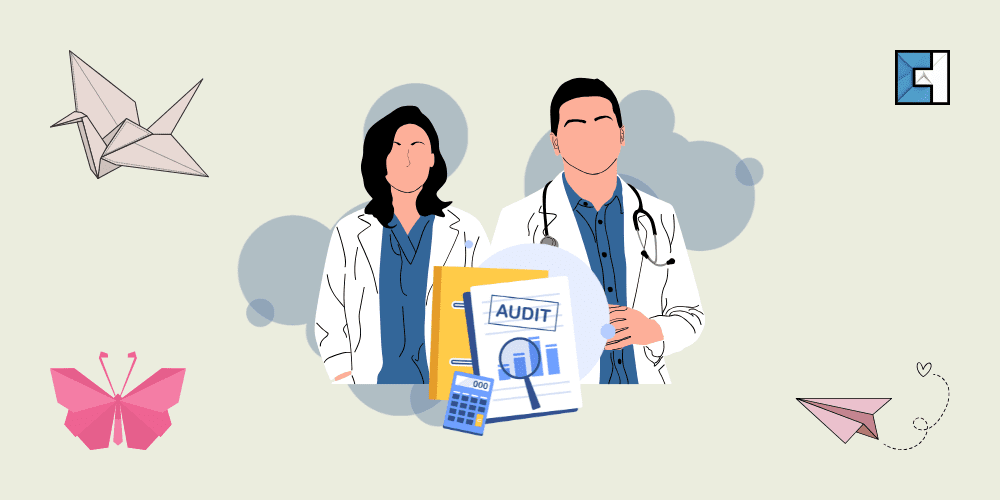Self-employment can be a great way to earn an income, and there are a number of benefits to registering as self-employed. If you are self-employed in the UK, it is important to understand your tax and National Insurance (NI) obligations.
In this blog post, we will explain how to register as self-employed and the responsibilities that come with being self-employed, such as submitting a Self-Assessment tax return. However, let us also explain why you need to register as self-employed.
Why There Is a Need To Register As Self-Employed?
When you register as self-employed, you become a business owner, and there are a number of benefits that come with this status.
For example, you may be able to claim tax reliefs and expenses, and you will have more control over your work life. In addition, registering as self-employed can help you build up a good credit history, which can be helpful if you want to apply for a mortgage or other financial products in the future.

When Do I Need to Register as Self-employed?
If you are self-employed, you must register with HMRC by the end of October following the tax year in which you became self-employed.
For example, if you started trading in July 2020, you would need to register by 5 October 2020.
How to Register as a Self Employed With HMRC?
You can register as self-employed online through the HMRC website. The process is relatively simple and should only take a few minutes to complete.
Fill in this form if you’ve sent a return online before. If you haven’t sent a return online previously, you’ll need to register first.
Once you have registered, you will be given a Unique Taxpayer Reference (UTR). This is a reference number that is used by HMRC to identify your tax affairs. You will need to use your UTR when filing your Self Assessment tax return.
The process of registering as self-employed is relatively straightforward. You will need to:
- Gather the required information, such as your National Insurance number and addresses for the last three years
- Complete the online registration form
- Print out and keep a copy of the confirmation page
It is important to register as self-employed as soon as possible after you start working for yourself. If you do not register within three months of starting self-employment, you may have to pay a penalty.
Do I Need to Register as a Sole Trader?
Most self-employed people in the UK are working as sole traders. It means that you are self-employed and running your own business as an individual. If you are a sole trader, you will need to register with HMRC as self-employed.
However, being self-employed doesn’t necessarily mean that you are a sole trader. There are other options also. You can register as a partner if you have a business partner also.
What are the Responsibilities After Registering as Self-employed?
Once you have registered as self-employed, there are a few key things that you need to do in order to stay compliant with HMRC.
Keep Accurate Records
First, you will need to keep accurate records of your income and expenditure. This can be done using a simple accounting software package, or by keeping manual records.
Self-Assessment Tax Return
Secondly, you will need to submit a self-assessment tax return every year.
This must be done by the 31st of January following the end of the tax year (i.e. if you are self-employed in 2021/22, your tax return must be submitted by the 31st of January 2023 or the 31st of July 2023).
Your first instalment is due on the same day you submit your Self Assessment tax return and pay off any outstanding tax bills from the previous year, so make sure you have adequate cash set aside.
Pay Income Tax & National Insurance
As for income tax, you’ll have to pay both Class 2 and Class 4 National Insurance Contributions (NICs). You will need to make sure that you pay all taxes and National Insurance.
For income tax calculation, You can use the self-employed income tax calculator.
VAT Registration
If the annual turnover of your business exceeds the VAT threshold (£85,000 for the 2021-22 tax year), you should register for VAT.
Being self-employed comes with a number of responsibilities, However, it can also be very rewarding. Registering as self-employed is the first step on the journey to becoming your own boss.
If you have any questions about how to register as self-employed or about your responsibilities after registration, Clear House Accountants — a certified accountancy firm of chartered certified accountants, is here to support you throughout your ventures with quality accounting and corporation tax return services explicitly designed to cater to freelancers, self-employed contractors, and sole traders.

What Insurance Do Self-Employed People Need?
Being self-employed has a lot of advantages. You get to set your own hours, choose your own clients and take on as much or as little work as you want. However, it also comes with a unique set of challenges, one of which is finding the right insurance. Here are a few of the most important types of insurance for self-employed people to consider:
Health Insurance
If you don’t have access to employer-sponsored health insurance, you’ll need to purchase your own policy. There are a variety of health insurance options available to self-employed people, so it’s important to do your research and find a plan that meets your needs and budget.
Life Insurance
A life insurance policy can provide financial security for your family in the event of your death. If you have dependents, it’s important to have sufficient life insurance coverage in place.
Disability Insurance
Disability insurance can help you stay afloat financially if you’re unable to work due to an injury or illness. If you’re self-employed, it’s especially important to have this type of coverage since you likely don’t have access to short-term or long-term disability benefits through an employer.
Conclusion
Overall, registering as self-employed is a relatively straightforward process. However, there are a few key things that you need to do in order to stay compliant with HMRC, such as keeping accurate records and submitting a self-assessment tax return every year. Being self-employed comes with a number of responsibilities, but it can also be very rewarding. Registering as self-employed is the first step on the journey to becoming your own boss. Self-employed people avoid hiring extra help to manage their business bank accounts and bookkeeping. Even if you have an excellent working knowledge of bookkeeping and how to pay tax, it is recommended that you employ professional accountants for business to prepare your accounts correctly so you can focus on your business activities more.









































































